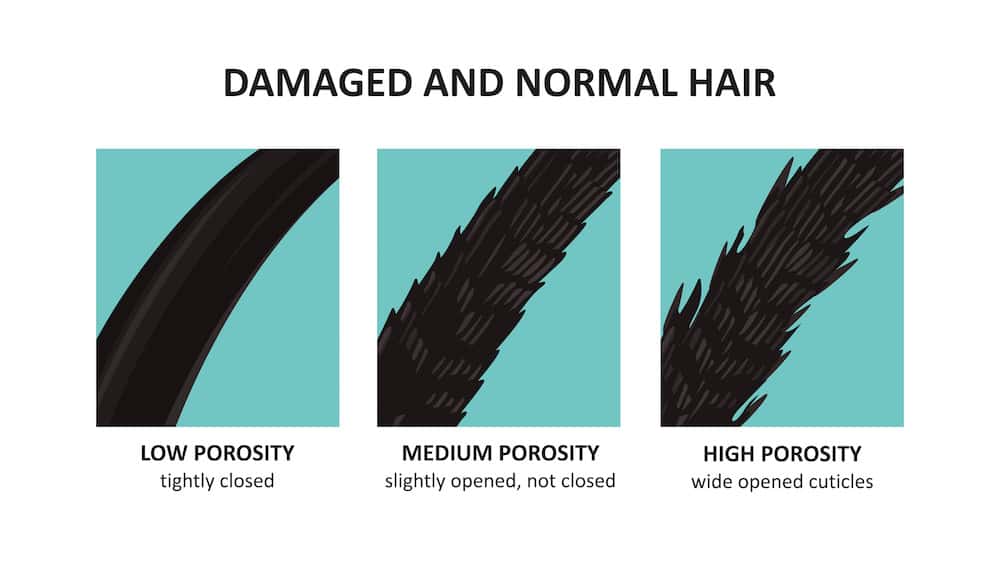
Hair shampoo is a hygiene product that is designed to clean the hair and scalp from sebum (natural skin oil), sweat, skin cells, dust and external factors such as air pollution. Shampoo is made up of washing bases as well as other components that can provide additional benefits such as conditioning, moisturizing, sun protection, color preservation, etc.
The ingredients in washing bases, also called surfactants or surfactants, are what create the lather in shampoo. They work by binding water and grease together, allowing them to be washed away. The most commonly used surfactants are SLS, SLES, cocamidopropyl betaine, etc.
In addition to the washing base, shampoos can contain various other ingredients. For example, conditioning agents such as silicones or quaternized ammonium polymers can help hair look smoother and more manageable. Other ingredients may include fragrances, preservatives, colors, vitamins, plant extracts, proteins, etc.
Additionally, the shampoo may be designed for a specific hair type (eg, dry, oily, damaged, color-treated hair) or to treat a specific scalp condition (eg, dandruff, sensitivity, eczema). Also, some shampoos may be free of certain substances such as sulfates, silicones, parabens, etc., based on customer preferences.
All of these components play an important role in hair shampoo, but it is important to note that not all shampoos are created equal. Everyone's hair and scalp is unique and what works for one person may not work for another. Therefore, an individual approach to the choice of shampoo is required, taking into account the specific type of hair and scalp and the problems of the specific condition.
Hair types
The choice of shampoo is very important because different hair types require different care methods. There are several basic hair types: dry, oily, normal, colored, damaged, and thin or thick. Each hair type requires a specific type of shampoo to suit their specific needs.
Dry hair: This hair is prone to split ends and therefore requires more moisture and nourishment. Shampoo for dry hair should be gentle and moisturizing, with ingredients such as aloe vera, shea butter, glycerin, oils (such as argan, coconut, jojoba oil), keratin and proteins.
Oily hair: This hair tends to become oily within a short period of time after washing. A shampoo for oily hair should be strong and intense, which effectively removes grease, but does not damage the natural moisture balance of the scalp. This is where ingredients like salicylic acid, zinc pyrithione, tea tree oil, and more can help.
Normal hair: This type of hair is not overly dry or oily, so it requires a balanced shampoo that cleanses the hair and maintains the natural balance of the scalp. A balanced shampoo with plant extracts and vitamin complexes is an excellent choice.
Color-treated hair: This hair tends to become dry and damaged from the coloring process, so it requires a gentle, moisturizing shampoo to help maintain the color. A shampoo with UV protection, sulfate-free and color-protecting ingredients is a great choice.
Damaged hair: This hair can be damaged due to excessive and frequent use of hot appliances, chemical treatments or environmental factors. They require a restorative shampoo with proteins, keratin, vitamin complexes and nourishing oils.
Thin/Thick hair: Thin hair may require a shampoo to add volume, while thick hair may require a shampoo to help control and manage the hair.
Remember that finding a shampoo that works for your hair type and condition is key, and this may require some experimentation.

What shampoo formulation is a good choice for maintaining a healthy scalp?
The composition of the shampoo is an essential factor in choosing a product that not only cleans the hair effectively, but also supports a healthy scalp. Here are some important ingredients and their functions:
Surfactants. These are the shampoo ingredients that perform the primary cleansing function as they help remove oil and dirt from the hair and scalp. It is important to choose a shampoo that contains mild surfactants, as too strong ones can damage the scalp and cause dryness. For example, SLS and SLES are strong surfactants that can dry out the scalp. On the other hand, ingredients like cocamidopropyl betaine and SLSa are milder and less likely to cause dryness or any irritation.
Humidifiers. These are ingredients that help retain moisture in the hair and scalp. Examples include glycerin, propylene glycol, sorbitol, and hyaluronic acid.
Proteins and keratin. These ingredients help strengthen the hair and can be beneficial if the hair is damaged or if it is dry.
Oils and emollients. These ingredients nourish and moisturize the hair and scalp. Coconut oil, argan oil, jojoba oil, shea butter, and avocado oil are examples of popular emollients.
Vitamins. Vitamins such as vitamin E and vitamin B complex can help nourish the hair and scalp, and they can help protect it from environmental factors such as UV rays.
Silicones. Silicones are very common in shampoos because they help add shine to hair. However, silicones can build up in hair and weigh it down, so some people choose silicone-free shampoos.
It is important to avoid shampoos that contain harsh sulfates, artificial fragrances and dyes, parabens, and alcohol, as they can dry out the hair and scalp, cause irritation, or build up in the hair. It is also recommended to choose shampoos with natural ingredients whose pH balance is similar to the pH balance of the scalp (about 4.5-5.5).
Steps in choosing a shampoo
When choosing a shampoo, you should take into account several essential factors that can affect not only the health of your hair, but also the general feeling after washing your hair.
Hair type is one of the main factors in choosing a shampoo. Shampoos are designed for different hair types - dry, oily, normal, damaged, thin, thick, etc. Moisturizing shampoos are recommended for dry hair, and shampoos for oil control are recommended for oily hair. Damaged hair may need shampoos with less aggressive detergents and more restorative ingredients.
The condition of the scalp can also affect the choice of shampoo. If you have dandruff, you may need a special anti-dandruff shampoo. If you have a sensitive scalp, you may want to avoid shampoos with strong fragrances or lots of chemical ingredients.
Shampoo ingredients should be as natural and safe as possible. Avoid sulfates, parabens, phthalates, and other potentially harmful ingredients. Also, look for shampoos with herbal extracts, essential oils, and vitamin complexes that can help nourish and strengthen hair.
Also, fragrance can have a big impact on your shampoo experience. Some people like strong, long-lasting scents, others like subtle, natural scents, and others are completely intolerant of scents. Choose a shampoo that smells good to you.
A more expensive shampoo does not always mean a better one. We often pay for a brand name rather than a quality product. It is important to compare prices, ingredients and customer reviews before making a final decision.
Finally, by choosing organic shampoos, you not only take care of the health of your hair, but also contribute to the protection of the environment. Look for products with recyclable or renewable packaging that does not use animal testing.
Remember that a good shampoo is one that meets the needs of your hair and scalp, and that you enjoy using.
Taking care of a healthy scalp is a very important aspect of keeping your hair healthy and strong
Here are some tips on how to best take care of your scalp:
Regular hair washing is essential to remove oil, sweat, skin cells and other impurities that accumulate on the scalp. How often to wash your hair depends on your hair and scalp type, as well as your lifestyle.
It is important to choose a shampoo that suits the needs of your hair and scalp. Some people have oilier scalps, others have drier scalps, some have problems with dandruff or sensitive scalps. Consider your individual needs when choosing a shampoo.
Hair should be washed gently so as not to damage the scalp. Gently massage the shampoo into the scalp, do not use too much force.
Conditioner helps keep hair soft and easy to comb, but should only be used from the mid-lengths to the ends, avoiding direct contact with the scalp.
Hair dryers, straighteners and electric tongs can damage both hair and scalp. Avoid using them as much as possible, and remember to use heat protection when you do.
A healthy diet and adequate water intake are important for maintaining a healthy scalp. Make sure you're getting enough protein, omega-3 fatty acids, vitamin E, and other nutrients that are important for hair health.
Stress can have a negative effect on your scalp, so it's important to find ways to manage it so you can keep your scalp healthy.
If you notice that your scalp is extremely dry, oily, flaky, itchy, red, or have other problems, see a dermatologist.
The health of your scalp is directly related to the health of your hair, so this is an important aspect to consider when taking care of your hair.

Sources of information:
American Academy of Dermatology. "How to choose a shampoo." https://www.aad.org/public/everyday-care/hair-scalp-care/hair/cleansing-conditioning
The International Journal of Trichology. "Shampoos: Ingredients, efficacy and adverse effects." 2007.
The Journal of Clinical and Aesthetic Dermatology. "The Shampoo pH can affect the hair: myth or reality?" 2014.
The Dermatologist. "Choosing the Right Shampoo and Conditioner." https://www.the-dermatologist.com/content/choosing-right-shampoo-and-conditioner
# šampūnas # šampūnai
